Afghan earthquake: Kabul appeals for emergency medical aid for survivors
With the death toll from a devastating earthquake in Afghanistan rising, the Taliban have appealed to the international community for help, saying the crisis-stricken country lacks sufficient medicine and equipment to treat the wounded.
At least 1,150 have been counted as dead, according to officials, who fear the toll is likely to mount further as search and rescue operations continue to face hurdles in the mountainous southeastern region of the landlocked country.
In just one district of Khost province, the earthquake killed at least 25 people and injured over 95 others, local officials said Friday.
Mohammad Nassim Haqqani, a spokesperson for the interim government's disaster management ministry, said more than 2,000 people sustained injuries in Wednesday's earthquake, and more than 10,000 homes were either completely destroyed or partially damaged.
"The health ministry does not have enough drugs, we need medical aid and other necessities because it's a big disaster," he was quoted as saying.
The 6.1 magnitude earthquake struck about 44 km (27 miles) from the city of Khost, near the Pakistani border, early on Wednesday.
The caretaker government in Kabul has called on the international community and global charities to help those affected by the massive quake.
The Taliban have also urgently renewed Afghanistan's call on the US to release the country's assets. There are about $7 billion of Afghan funds from the country's central bank frozen in the United States.
In February, US President Joe Biden signed an executive order that would seize the Afghan assets and move half to a fund purportedly designated for humanitarian aid for Afghanistan. However, Biden nodded to legal wrangling with some 9/11 families pursuing claims against those assets as the reason for not trying to free the other half of Afghan funds allegedly for the Afghan people.
The freeze has continued amid Afghanistan's economy being on the verge of collapse, inflation soaring, and millions of Afghans on the brink of starvation.
However, Washington's callous indifference to humanitarian crises is known to all and sundry.
When Iran was hit by the worst coronavirus pandemic in the Middle East, calls mounted from around the world on the United States to ease sanctions on the country in order to allow the Islamic Republic to buy vital medical equipment and vaccines from abroad, but Washington was unimpressed.
This is the deadliest earthquake to hit Afghanistan sitting in the lap of the Hindukush Mountains since 2002 when a magnitude-6.1 earthquake killed around 1,000 people in northern Afghanistan.
Before that, in 1998, a magnitude-6.1 earthquake and following tremors in northeast Afghanistan resulted in the death of at least 4,500 people.
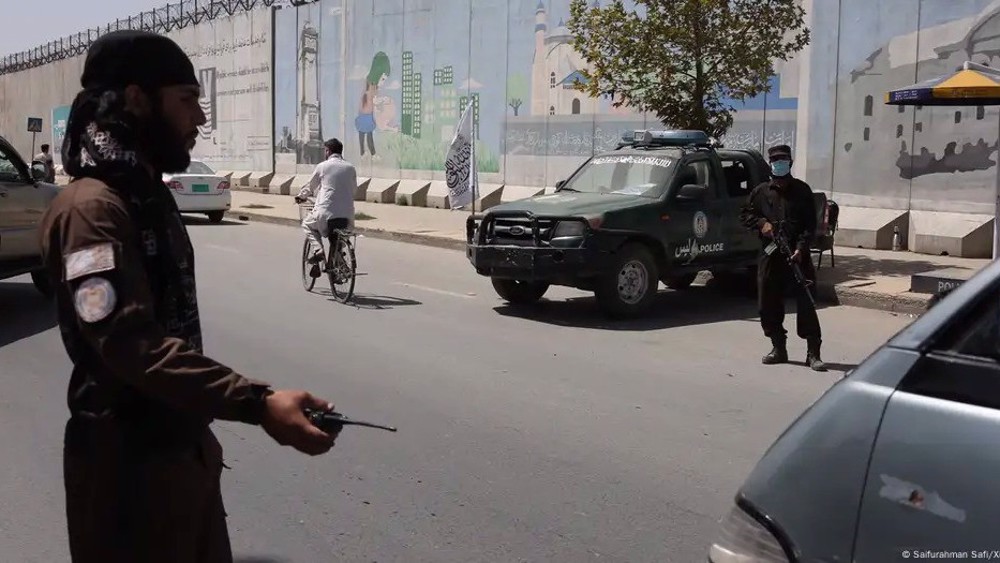
Deadly bombing attack targets Taliban ministry building in Kabul
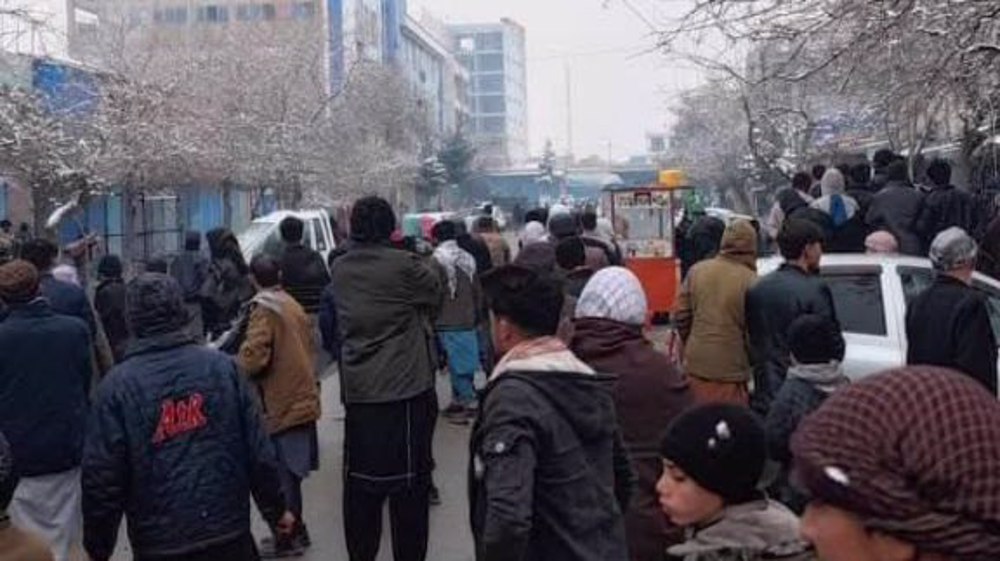
Daesh claims deadly bombing attack in northern Afghanistan
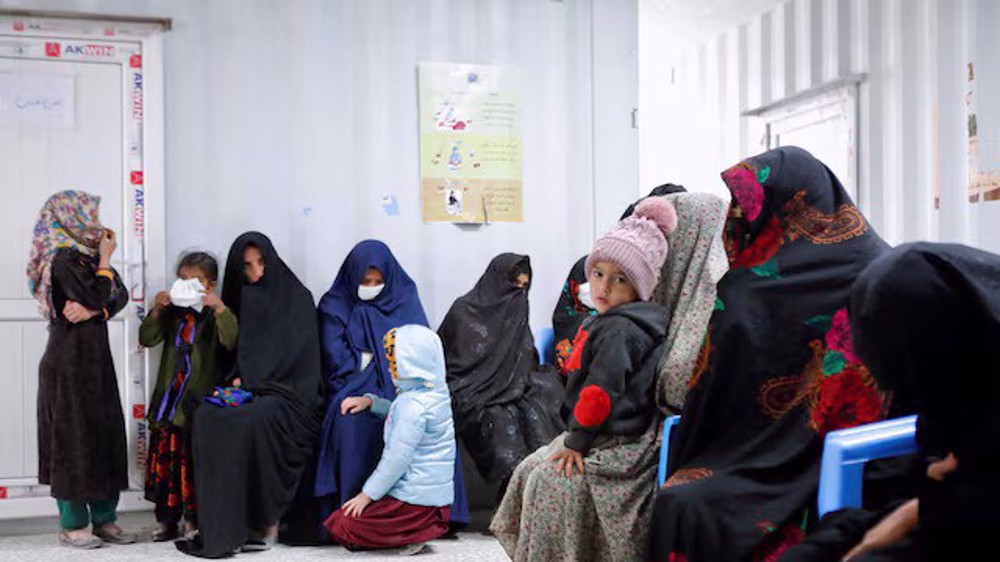
UN warns of rise in maternal deaths in Afghanistan due to US funding pause
Iran releases 1st video of Israeli-linked ship seized last April
Israel threatens to attack city near Syria’s capital
We won’t let Netanyahu sacrifice captives: Families
Egypt reaffirms ‘unwavering support’ for Palestinian cause ahead of emergency Arab Summit
VIDEO | Press TV's news headlines
Iran to keep current subsidized exchange rate in next year's budget
Iran will change military tactics, techniques based on threats: Top Cmdr.
Israeli bulldozers demolish homes in West Bank; Hamas urges UN to stop 'war crimes'


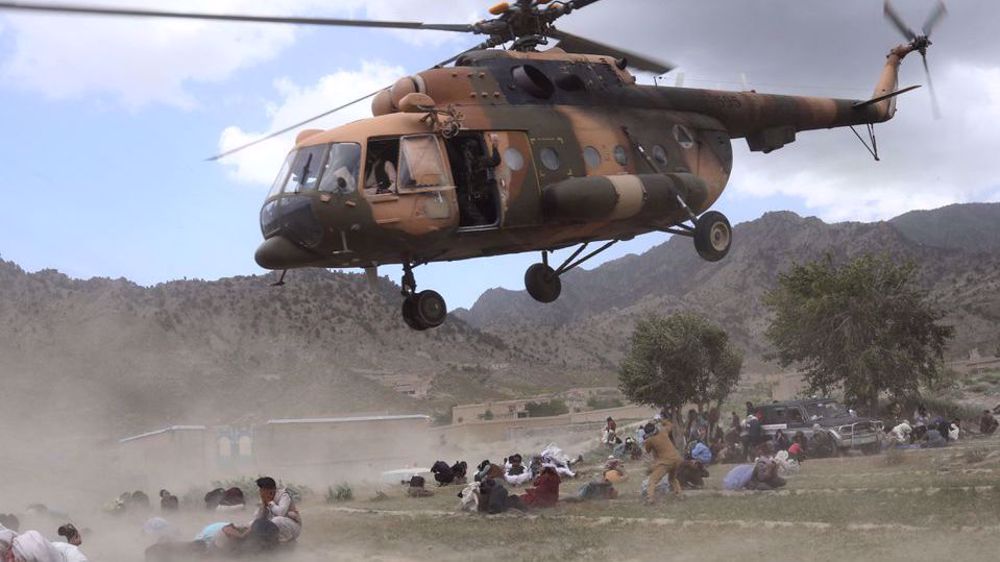
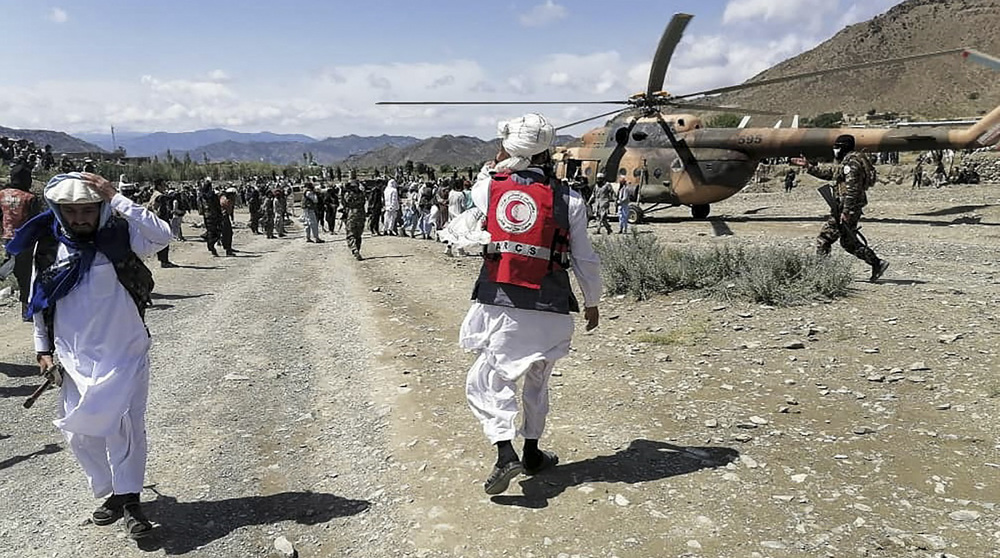



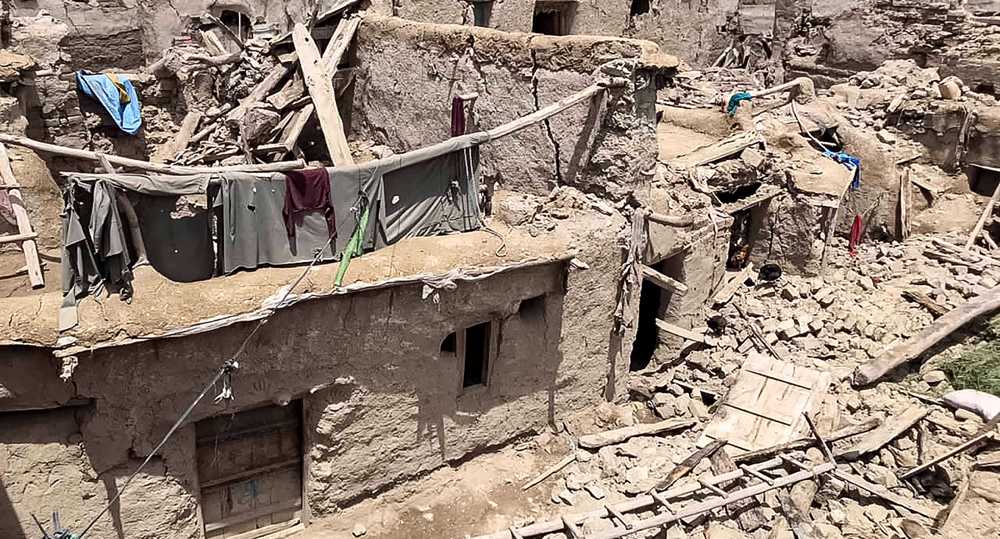
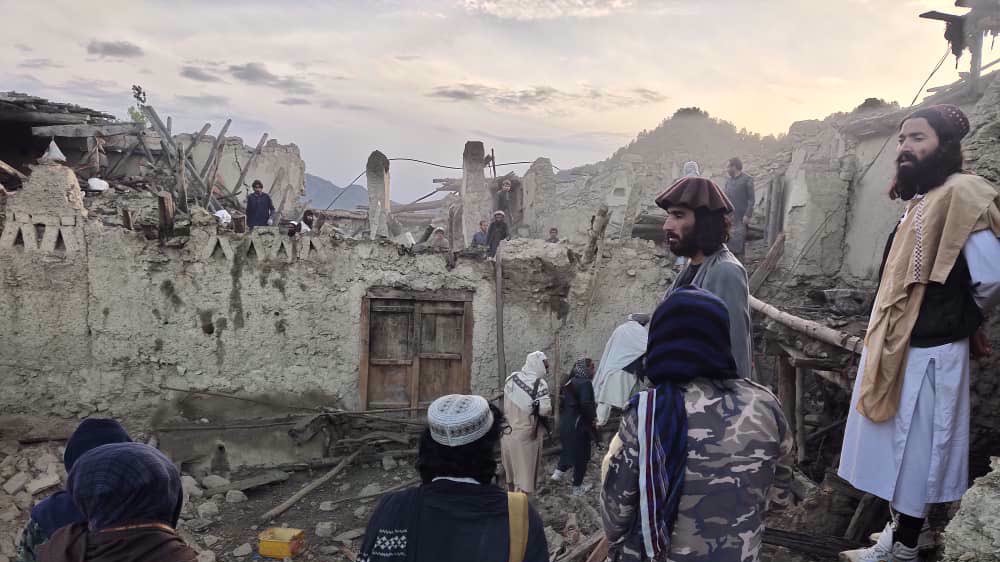
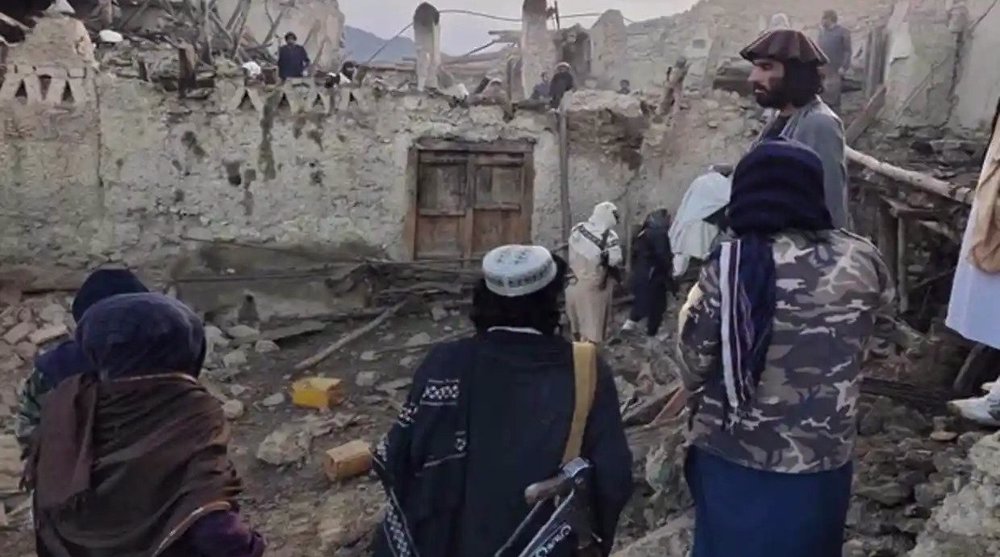

 This makes it easy to access the Press TV website
This makes it easy to access the Press TV website